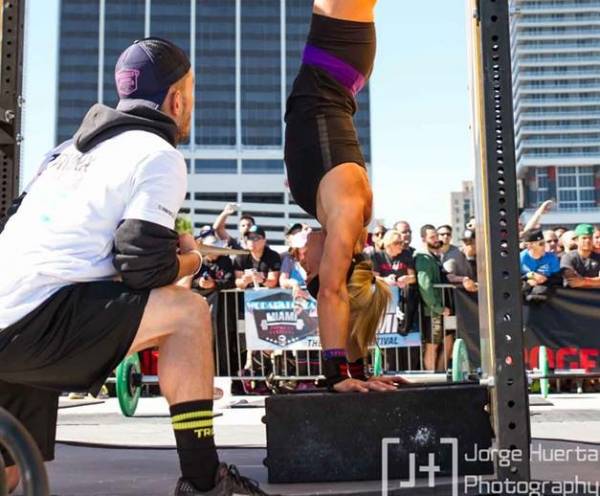Somewhere along the way someone instilled in me the value and importance of setting goals. It may have been a teacher, my parents, a summer camp instructor, or some combination of the above who really hammered home that you need to pick goals and work toward them to ensure success in life.
As far back as middle school, I have always had a goal or two to work toward. Always. Without a goal, I feel anxious, without direction, and a bit out of sorts. When I have a goal, I am focused. I feel more at ease. I am able to make decisions more easily.
Almost everything is focused on meeting my goal. I think that might be why I get a wee bit flustered when my schedule gets screwed with (those who know me realize that is a huge understatement). If something messes with my plan for the day, which is inevitably geared toward meeting a goal, I get a little mad.
Goals Are Important
So, why am I blabbing on and on about goals? I think they’re important, especially when it comes to fitness. When we don’t define our goals, we have less of a chance of actually attaining what we want. And if you don’t know what you want…Well, it’s time to start thinking about that, but how to do it is an entirely different article.
But for most of us reading Breaking Muscle, and especially those of us who love CrossFit, our goals likely very similar and probably include some kind of athletic component. After all, it’s that magical time of year again. I think it was Cheryl Noyce who said it best when she declared this time of year as the CrossFit New Year.
We’ve all just watched the fittest athletes in the world compete in the CrossFit Games and we are all making our resolutions for the coming training year. Right? But even if you haven’t heard of CrossFit or watched the games, setting fitness and health goals is something everyone should be doing if they’ve decided their fitness is a priority and they want to get in shape.
Good Goals Are SMART
Oh, and no, the goal to “get in shape” is not a good goal. It’s way too general, not specific enough, not objective enough, and there’s no time by which that goal needs to be met. No, if you want a goal that will actually get your butt motivated it needs to meet a few requirements. Good goals are SMART. And by that I mean:
- Specific
- Measurable
- Attainable
- Relevant
- Time Bound

A good goal also needs to be something that lights a fire in you. An example of a good goal would be: “I will handstand walk fifty meters by Dec 31, 2014.” It’s a good goal because it’s specific as to what I want to accomplish and I can time (measure) the length of my handstand walk. It’s attainable (I think) because I can already get into a handstand. It would be a different story if I were still working on getting inverted. It’s relevant because I do CrossFit and want to get better at gymnastics. And I put a time limit on it. If I just said I want to be able to do a fifty-meter handstand walk, but didn’t say when, then there is no pressure to work on it.
Oh, and speaking of time, I would also set mini-goals at the twelve, six, three, and one month milestones. This will help keep me motivated and on track to find my pot ‘o gold at the end of the rainbow (so to speak).
The Value of Short-Term Goals
There is also tremendous value for setting short-term goals. I mean really short term. As in, “What do I want to get out of this workout tonight?” Setting an intention for the day and for each workout helps you make progress toward your bigger, longer-term goals by encouraging you to make steady and consistent progress.
How good does it feel to check something off of your to-do list? Great, right? Even if it’s something small, it makes you feel that much closer to finishing your list. The same applies to fitness goals. Ask yourself what you want to accomplish today or during your workout. How do you want to feel during your metcon? Are you working on pacing today? Or maybe you want to be sure your technique is consistent? Maybe today is the day you go all out and get a feel for what a real competition is like? Whatever it is, make sure you know what your goal is and attack your workout like you mean it.
Focus and Be Present
That brings up another great point – make sure you are actually focusing on your training, workouts, and mobility when you’re at the gym. In order to meet the smaller, daily goals you have to be able to focus and, to borrow a term from my yogi friends, be present. Put your phone away. Stay off of Facebook and Instagram for five minutes and get your work done.

We, as a society, are constantly distracted. We call ourselves multi-taskers, but we’re feeling more time-strapped and stressed out because of it, and to top it off, we aren’t actually getting much done. Stop trying to do ten things – heck, even two things – at once. Focus on one thing at a time. Make sure you are giving your full attention to whatever you’re doing at the moment, and then move along.
So, squat now, Facebook about it later. Cool?
Just Do It
To sum things up, goals are important. Without them, we flounder. To meet goals we need to identify what we want long term, then break that lofty goal or goals down into shorter-term goals that will eventually get us to the finish line. I would choose specific SMART goals for twelve, six, three, and one months from now.
Once you figure out those short-term goals, work on planning your workouts, diet, and schedule. Remember to set a focus and intention for every week, day, and possibly even hour of the day. Maybe that sounds a bit overwhelming, but it’s not once you see it on paper. Plus, having clear direction is calming and much less anxiety inducing. It takes the guesswork out.
So, get out a piece of paper and pen and get to dreaming and planning. See you at the 2015 CrossFit Games, right?
Photos 1 and 2 courtesy of Shutterstock.
Photo 3 courtesy of Jorge Huerta Photography.






